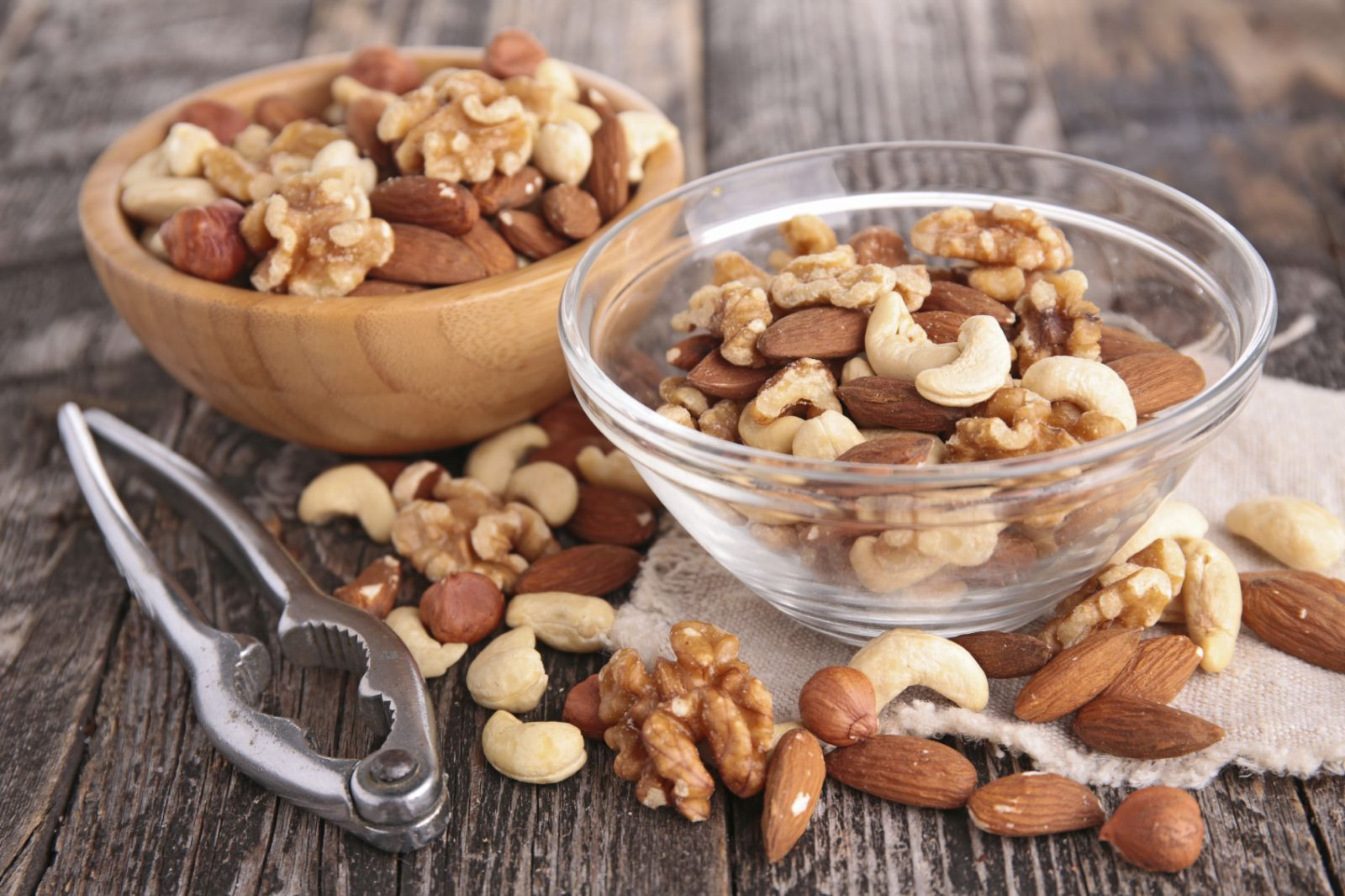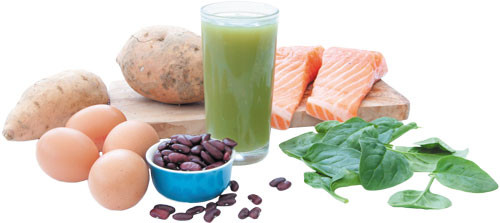
Trying to lose weight? Be careful not to lose muscle

Is your skin problem actually an autoimmune condition?

People with diabetes face higher risk of hearing loss

Antibiotic-free fixes for recurrent UTIs

Musculoskeletal syndrome of menopause: When menopause makes you ache all over

When can older women stop getting mammograms?

To lose weight, especially harmful belly fat, combine diet and exercise

Can men hold off on treating recurring prostate cancer?

The 7 types of rest and why we need them all

What are the early warning signs of cervical cancer?
Nutrition Archive
Articles
Is chocolate really a health food?
Most chocolate candy is low in flavonals. |
This treat is fine in small quantities, but its benefits for heart and brain health are still unproven.
Retail shelves are brimming with Halloween candy this month. If you're thinking of buying a supersized bag of miniature chocolate bars for healthy snacking, you may want to reconsider. Chocolate has been hyped as a food that may ward off cardiovascular disease and help to improve your memory, but at this point that's an overstatement.
Here's why: While some observational studies have linked chocolate consumption to reductions in heart disease and dementia, they don't establish a cause-and-effect relationship. Any benefit is thought to be due not to chocolate as such but to flavanols—bioactive compounds that occur naturally in the cocoa bean. Even though several small clinical trials have found that consuming high doses of flavanols can relax blood vessels and stimulate blood flow to the brain, more evidence is needed to determine whether they actually protect against heart attack and stroke. "Flavanols are one of the most promising and exciting nutritional interventions available for helping to reduce the risk of cardiovascular disease, and a large-scale randomized trial is the next logical step in testing their effectiveness," says Dr. JoAnn Manson, chief of the Division of Preventive Medicine at Harvard-affiliated Brigham and Women's Hospital.
What's the scoop on bone soup?
| Image: Thinkstock |
Broths made from meat bones have been touted as foods that soothe arthritis, boost immune function, and smooth your skin. But the claims often exceed the evidence.
In the last couple of years, bone broths have become so popular they are being hailed as "the new coffee." While bone-broth shops aren't about to replace Starbucks outlets any time soon, some people are drinking mugs of the soup not just at noon, but also at break time throughout the day. Media coverage of the bone-broth phenomenon is filled with testimonials to the soups' purported health benefits—as bone builders, immune boosters, and even wrinkle removers. However, there is scant scientific evidence to support those claims.
Olive oil consumption linked with slightly lower diabetes risk for women
| Image: Thinkstock |
Using olive oil, especially in place of trans fats and saturated fats, has been shown to reduce the risk of heart disease. Recently, scientists from two universities in Spain collaborated with Harvard researchers to examine whether olive oil had a protective effect against developing diabetes as an adult.
The team analyzed data from 145,000 women enrolled in the Nurses' Health Studies I and II. The women answered very detailed questionnaires about their diets every four years, including questions about how much olive oil they consumed daily. Over 22 years, about 9,650 of those women had developed diabetes. When the researchers analyzed the data, they determined that consuming at least a tablespoon of olive oil a day was associated with a 10% lower risk of developing diabetes. The study was published online July 8, 2015, by The American Journal of Clinical Nutrition.
Should you go organic?
Organic produce may have fewer pesticide residues than conventionally grown produce. But the amounts for both are within the levels for safe consumption. Image: Thinkstock |
These foods are grown without fertilizers, pesticides, and other synthetic additives. But are they better for you?
Walk through any grocery store today, and you'll likely see more shelf space devoted to organics—foods that are grown without most synthetic fertilizers and pesticides, and animal products that are free of antibiotics and hormones. Demand for organic food is up, with sales reaching $35.9 billion in 2014. "I think people believe these foods are better for them, but we really don't know that they are," says registered dietitian Kathy McManus, director of the Department of Nutrition at Harvard-affiliated Brigham and Women's Hospital.
Ask the doctor: Healthy nuts: How much should I eat?
Ask the doctor
Image: iStock |
Q: I've read a lot lately about nuts and how they prevent heart disease. How much should I eat, and are some nuts healthier than others?
A: Nuts contain high amounts of polyunsaturated fat and are a staple in the popular Mediterranean diet. Commonly studied nuts include walnuts and almonds, which have been shown in short-term studies to lower cholesterol. In the PREDIMED trial, a Mediterranean diet supplemented with 30 grams of nuts daily reduced the risk of heart disease. Thirty grams of nuts is equal to about 20 almonds or 10 walnuts. In other studies that showed health benefits from nuts, the frequency of consumption was recorded, not the amount. Daily consumption appeared to be best.
Do you eat enough protein?
Obtain the moderate amount of protein you need from a variety of nutritious foods—not just meat.
To meet your daily protein needs, combine small to medium portions of meat, dairy, and nuts with protein-rich whole grains, legumes, and vegetables.
Protein is essential to good health. You need it to make the bricks and mortar of the body, including muscle, bone, and blood. But how much protein does the average man need in order to stay healthy?
Breakfast-skippers: Don't forget your fruits and grains
| Image: Thinkstock |
Skipping breakfast can reduce the overall number of healthy fruits and whole grains that you eat, according to a study in The American Journal of Clinical Nutrition. To study the impact of breakfast skipping, researchers drew on data collected from 2005 to 2010 in a national survey. Here are the key findings:
Breakfast skippers were apparently hungrier at lunch, since they tended to eat a half-hour earlier than usual and ate more calories—about 200 extra for men.
8 ways to eat more fruits and vegetables
| Image: iStock |
They're full of the nutrients you need for a healthy heart.
That familiar refrain "Eat your vegetables!" still hasn't sunk in. Only about one in 10 adults in the United States eats the amount recommended by the current federal dietary guidelines. And we're not doing much better when it comes to fruit, according to a recent report from the CDC (see "How much should you be eating?" below).
Water and health: Follow your thirst
| Image: Thinkstock |
Most men can get the water they need from their usual diet and by drinking when they are thirsty.
Especially in hot weather, we are urged to drink adequate fluids and be on guard for dehydration. That may be why you see people toting bottled water everywhere, propelled by the myth that you need to drink eight glasses of water a day to be healthy.
DASH or Mediterranean: Which diet is better for you?
Both eating plans have proven health benefits. Deciding which to follow depends on your goals and preferences.
The DASH diet has been named the best diet in the United States by U.S. News and World Report. However, the U.S. government panel writing the 2015 Dietary Guidelines for Americans cited the Mediterranean diet as an example of how we should eat. If you're trying to choose the best eating plan to lower your health risks, which one should it be?

Trying to lose weight? Be careful not to lose muscle

Is your skin problem actually an autoimmune condition?

People with diabetes face higher risk of hearing loss

Antibiotic-free fixes for recurrent UTIs

Musculoskeletal syndrome of menopause: When menopause makes you ache all over

When can older women stop getting mammograms?

To lose weight, especially harmful belly fat, combine diet and exercise

Can men hold off on treating recurring prostate cancer?

The 7 types of rest and why we need them all

What are the early warning signs of cervical cancer?
Free Healthbeat Signup
Get the latest in health news delivered to your inbox!
Sign Up











